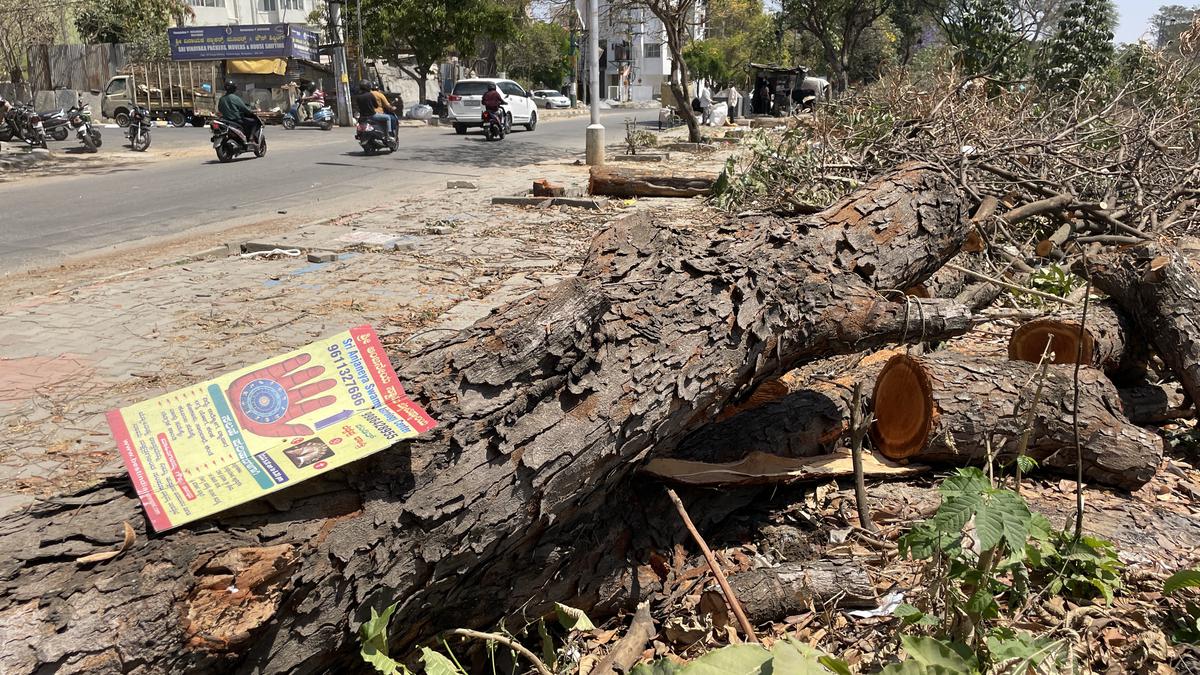
Over 1,500 trees will be axed for Baiyappanahalli - Chikkabanavara line of suburban rail project
The Hindu
Residents in Kasturingar raise concern, demand authorities to reconsider axing of trees
Close to 1,500 trees will make way for the first phase of the Bengaluru Suburban Rail Project (BSRP) in the city.
The contractor, selected by Rail Infrastructure Development Company (Karnataka) Limited (KRIDE), has started axing trees at multiple locations. Under phase I of the project, the KRIDE has taken up corridor 2 from Baiyappanahalli to Chikkabanavara; the total length of this corridor is 25 km.
The KRIDE, in two separate requests to the Deputy Conservator of Forests (DCF) of the Bruhat Bengaluru Mahanagara Palike (BBMP), has sought the removal of 2,091 trees.
The DCF, who is also the tree officer, has permitted the axing of 1,502 trees for laying tracks and allied construction work. For the rest of the trees, an order was issued for retention or translocation.
No objections were received for the removal of trees after the public notice was issued by the tree officer. The first order for the removal of 268 trees was issued in December, and for 1,234 trees, the order was issued on Friday.
An official of KRIDE said: “For corridor 2, in three stages, we have approached the tree officer, seeking permission to remove trees coming in the way of the alignment. In the first stage, the trees coming under BBMP limits were identified, and the tree officers were permitted to fell 268 trees. These trees are located on the roadside or pavements. In the next stage, trees located on railway land were identified from Baiyappanahalli railway station to the Lottegollahalli railway station. On this stretch, permission has been granted to fell 1,234 trees. For the rest of the stretch, tree inspection is on”.
The KRIDE will translocate a total of 131 trees.





















 Run 3 Space | Play Space Running Game
Run 3 Space | Play Space Running Game Traffic Jam 3D | Online Racing Game
Traffic Jam 3D | Online Racing Game Duck Hunt | Play Old Classic Game
Duck Hunt | Play Old Classic Game











